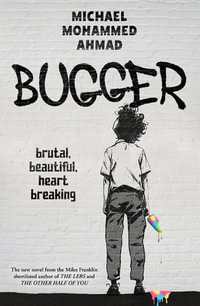Like a long winter's dream, this new novel by Han Kang takes us on a journey from contemporary South Korea into its painful history
One morning in December, Kyungha receives a message from her friend Inseon saying she has been hospitalized in Seoul and asking that Kyungha join her urgently. The two women have last seen each other over a year before, on Jeju Island, where Inseon lives and where, two days before this reunion, she has injured herself chopping wood. Airlifted to Seoul for an operation, Inseon has had to leave behind her pet bird, which will quickly die unless it receives food. Bedridden, she begs Kyungha to take the first plane to Jeju to save the animal.
Unfortunately, a snowstorm hits the island when Kyungha arrives. She must reach Inseon's house at all costs, but the icy wind and snow squalls slow her down as night begins to fall. She wonders if she will arrive in time to save Inseon's bird - or even survive the terrible cold that envelops her with every step. Lost in a world of snow, she doesn't yet suspect the vertiginous plunge into the darkness which awaits her at her friend's house.
There, the long-buried story of Inseon's family surges into light, in dreams and memories passed from mother to daughter, and in the archive painstakingly assembled at the house, documenting a terrible massacre on the island of 30,000 civilians, murdered in 1948-9.
We Do Not Part is a hymn to friendship, a eulogy to the imagination, and above all a powerful indictment against forgetting. These beautiful pages form much more than a novel - they illuminate a traumatic memory, buried for decades, that still resonates today.
About the Authors
Han Kang was born in 1970 in South Korea. In 1993 she made her literary debut as a poet and published her first short story in 1994. She won the Man Booker International Prize for The Vegetarian and was shortlisted for The White Book. In 2024, Han Kang was awarded the Nobel Prize in Literature 'for her intense poetic prose that confronts historical traumas and exposes the fragility of human life'.Among other major awards and prizes she is the winner of the Prix Medicis Etranger 2023 for the French edition of We Do Not Part. She taught in the department of creative writing at the Seoul Institute of the Arts for eleven years before leaving in 2018 to focus on writing. She is the fifth writer to contribute to the ongoing Future Library project in Oslo, Norway.
E. Yaewon is based in Korea and translates from and into Korean. Recent translations include titles by Hwang Jungeun, Jessica Au and Maggie Nelson.
Paige Aniyah Morris (Translator)Paige Aniyah Morris divides her time between the United States and Korea. Recent translations include works by Pak Kyongni, Ji-min Lee, and Chang Kang-myoung.
Industry Reviews
Unforgettable . . . A disquietingly beautiful novel about the impossibility of waking up from the nightmare of history. Hang Kang’s prose, as delicate as footprints in the snow or a palimpsest of shadows, conjures up the specters haunting a nation, a family, a friendship
- Hernan Diaz, Pulitzer Prize winning author of Trust
A visionary novel about history, trauma, art and its tremendous costs. Han Kang is one of the most powerfully gifted writers in the world. With each work, she transforms her readers, and rewrites the possibilities of the novel as a form
- Katie Kitamura, author of Intimacies
Han Kang. Behind these two syllables lies a novelist in the image of her latest translated work, We Do Not Part: fine, precise prose, with a poetry that willingly plunges into the fantastic, but sufficiently complex to conceal, beneath its praise of dreams and the imaginary, an implacable depiction of human cruelty
- Le Monde
One of the greatest living writers . . . She is a voice for women, for truth and, above all, for the power of what literature can be
- Eimear McBride
[Han Kang’s] empathy for vulnerable, often female, lives is palpable, and reinforced by her metaphorically charged prose . . . She has a unique awareness of the connections between body and soul, the living and the dead, and in a poetic and experimental style has become an innovator in contemporary prose
- Nobel Prize in Literature Committee
Bold and revelatory, disquieting and subversive, Han’s style is both spare and lyrical
- Guardian

























